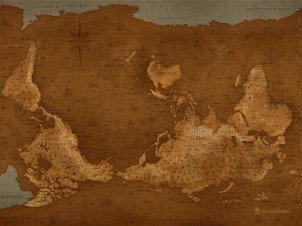
By Alejandro Colsa, Bernadette Grafton, Katy Hintzen and Sara Orvis.
As students at the University of Michigan’s School of Natural Resources and the Environment we consider ourselves lucky to be part of an institution that has played a major role in the historic evolution of the United States environmental justice movement. Coming from different backgrounds, the four of us have found environmental justice to be a unifying passion.
When we first encountered the Environmental Justice Organizations, Liability and Trade (EJOLT) project we recognized its potential to further global collaboration among EJ activists and scholars. The EJOLT project allows us to explore a wide array of environmental justice issues, giving us a richer understanding of what environmental justice is and how it’s been manifested in the United States. At the same time, EJOLT provides us with the opportunity to be part of an exciting new movement towards increased international collaboration in environmental justice.
EJOLT is an international project that aims to map environmental justice conflicts around the world. EJOLT has reported on and analyzed environmental conflicts in more than 60 countries, including India, Ecuador, Mexico, and South Africa. Cases like the Map of Environmental Injustices in Turkey have made headlines in mainstream media. However, environmental justice cases in the U.S. have not yet been integrated into this international effort.
With the help of our two academic advisors, Professor Rebecca Hardin and Professor Paul Mohai, we reached out to the EJOLT project coordinator Professor Joan Martinez Alier and offered to spearhead an effort to identify and analyze 40 influential U.S. environmental justice case studies to contribute to EJOLT.
This is where we need your help! Choosing 40 case studies to represent the environmental justice movement and its historical development in the United States is a monumental task. We decided to create a public survey that engages the wider U.S. environmental justice community and harnesses the expertise of scholars, activists, and citizens like you to help determine which case studies are included in this database.
We need your help identifying which conflicts should be included in this project. If you would like to participate, please fill out our 5-to-10 minute survey. When answering the following questions, please keep in mind that we are not asking you to rank the case studies. All of the case studies have been divided into 10 categories defined by EJOLT. Each category also provides an option to write-in any case studies that are not in this survey, but you feel should be included.
In order to make the survey shorter and more manageable, we have created two survey options. If you were born on a day ending with an even number please use this survey link, and if you were born on a day ending with an odd number please use this survey link. The survey will only be open through August 23rd, so make sure and take soon. Thanks for your collaboration!
More info about the authors, see the source of this article – a section of the US government Environmental Protection Agency website:

The project ENVJUSTICE has received funding from the European Research Council (ERC) under the European Union’s Horizon 2020 research and innovation programme (grant agreement No. 695446)